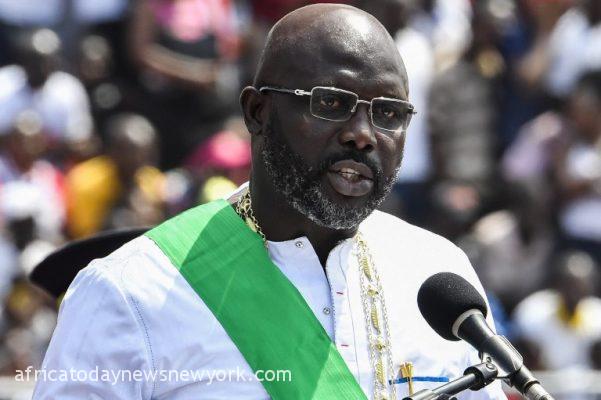The President of Liberia and former international football star George Weah has officially announced that he would vie for re-election later this year in a rather shocking decision.
Africa Today News, New York reports that the announcement is coming on the heels of mounting criticism of Weah, who has been repeatedly accused of being out of touch with the population facing rising prices and food shortages.
‘My fellow citizens, I will be coming to you shortly to ask you to renew (…) for a second time the mandate that you gave me six years ago,’ Weah said in his annual State of the Nation address.
Meanwhile, the election said election is billed to hold on October 10 in the West African country.
Weah came to power in 2018 after winning an October 2017 election.
The 56-year-old was absent from Liberia for more than a month late last year, prompting criticism.
Read Also: Liberians Grow Wary Of Weah As Economic Woes Deepen
He went abroad at the end of October for a string of political gatherings in numerous countries — and to watch his footballer son represent the United States at the World Cup in Qatar.
The president was not until December 18 seen in his homeland, where people have been battling soaring prices and shortages of basic goods.
The day before several hundred Liberians had demonstrated peacefully at the call of the opposition to denounce the incompetence but also Weah’s indifference to the plight of ordinary Liberians.
Fighting corruption had been one of Weah’s major campaign promises, but in September he accepted the resignations of three close allies after the United States accused them of corruption.
Weah had initially suspended the men from their roles after Washington imposed sanctions on them over allegations tied to multi-million-dollar contracts and at least $1.5 million in diverted public funds.
Graft remains endemic, with the watchdog Transparency International ranking Liberia 136th of 180 countries in its 2021 corruption perceptions index.
Founded as a colony in 1822 by former US slaves, Liberia became a republic 25 years later — Africa’s first.
It is still recovering from back-to-back civil wars that left 250,000 people dead.

